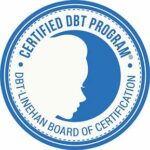Dialectical Behavior Therapy (DBT)
What is Dialectical Behavior Therapy (DBT)?
Dialectical Behavior Therapy (DBT) is an evidence-based treatment created by Dr. Marsha Linehan. It was originally created for the treatment of borderline personality disorder – a disorder characterized by highly suicidal behaviors, self-harm, and intense, out-of-control emotions. DBT has now proven effective in treating a wide array of mental health disorders – personality disorders, chronic depression, anxiety disorders, eating disorders, and addictions.
Who is DBT For?
DBT is a treatment designed for individuals who struggle to regulate their behaviors and emotions effectively. This can look like suicidal thinking, self-harm (cutting, etc.), addiction, difficulty with anger/rage, chronic depression and anxiety, eating disorders, intense shame, and unresolved trauma to name a few. Clients who would most benefit from DBT are those where “treatment as usual” (traditional psychotherapy) has not been effective and/or their behaviors and emotions cause severe impairment to their quality of life. DBT is an empirically-supported treatment – meaning it has been studied at length in clinical trials and has repeatedly proven effective.
What Does Your DBT Program Entail?
The DBT program at Nystrom & Associates has been certified by the State of Minnesota Department of Human Services as an adherent, standard DBT program. Our certified DBT program includes all of the components of treatment included in DBT:
- Weekly individual therapy
- Weekly skills training group
- Access to after-hours DBT phone coaching
- A DBT consultation team of committed and trained DBT therapists
We cover these 4 main modules:
Mindfulness is the ability to be in the present moment. Mindfulness skills help us to experience our current environment, sensations, feelings, and thoughts in a non-judgmental way. Mindfulness can help when distracted and overwhelmed. Mindfulness helps to reduce misery and increase our capacity for joy and hope.
Interpersonal effectiveness skills help to reduce painful and chaotic relationships. Interpersonal effectiveness skills teach clients how to ask for what they want or need and say no to unwanted requests – all while maintaining or improving the quality of their relationships and maintaining their self-respect.
Emotion regulation skills help to reduce painful, unwanted emotions. Clients learn how to live more effectively with their emotions – how emotions work, how to manage them more effectively, and how to reduce sensitivity to emotions.
Distress tolerance skills help clients get through difficult and painful moments without making things worse. Distress tolerance skills include crisis survival skills as well as skills to help tolerate and accept pain in a more effective way.
Our DBT Groups
Adult Groups:
- Adult Skills Training Group
- Adult DD/TBI Skills Training Group
- Expected to commit to the yearlong program
- Weekly group meeting which lasts for 2- 2.5 hours
- Participate in weekly individual therapy
Child & Adolescent Groups:
- Adolescent/Family Skills Training Group
- Child/Family Skills Training Group
- Expected to commit to the 20-week program
- Adolescent and parent each have their own individual therapist for the duration of the program
 Our New Brighton DBT Program is nationally certified by the DBT-Linehan Board of Certification (DBT-LBC). This means that experts in the treatment observed, reviewed, and evaluated the practices of our DBT program. This certification confirms sound practices and that our program has a Team Leader who is certified as a DBT-LBC-Certified Individual Clinician and that our DBT program successfully implements the core practices of DBT.
Our New Brighton DBT Program is nationally certified by the DBT-Linehan Board of Certification (DBT-LBC). This means that experts in the treatment observed, reviewed, and evaluated the practices of our DBT program. This certification confirms sound practices and that our program has a Team Leader who is certified as a DBT-LBC-Certified Individual Clinician and that our DBT program successfully implements the core practices of DBT.
Dialectical Behavior Therapy (DBT) Locations
We accept all insurances including medical assistance and other state health plans. A reduced rate for uninsured private pay patients is available. Forms for this program can be found on our Patient Forms page by clicking here.